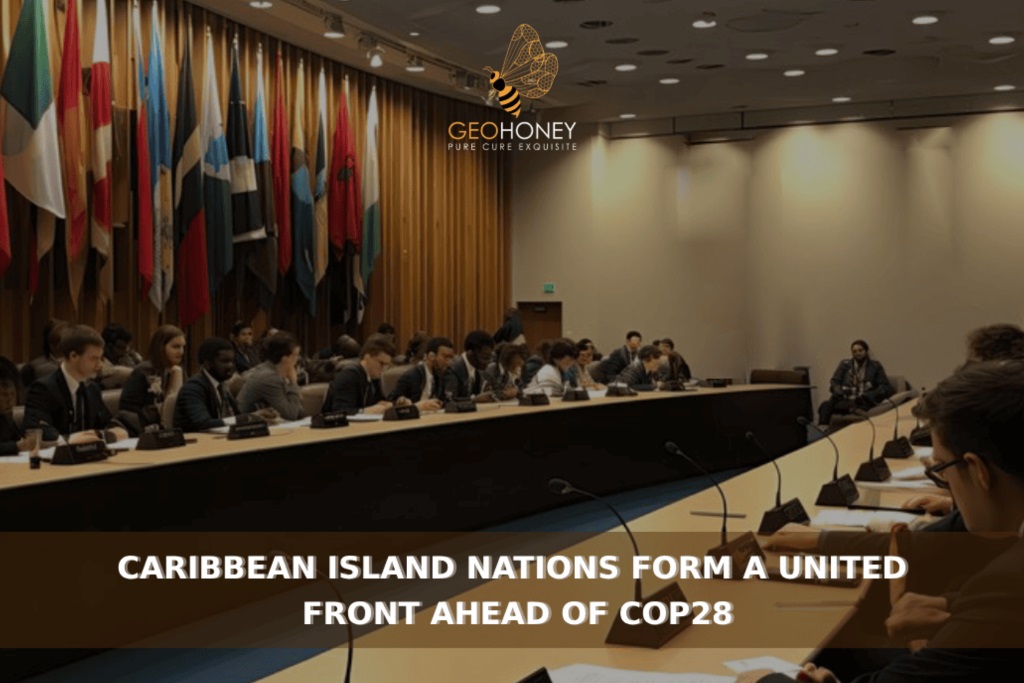- Tokyo: 07:16
- Singapore: 06:16
- Dubai: 02:16
- London: 22:16
- New York: 17:16
Caribbean Island Nations Form A United Front Ahead of COP28

The second Caribbean Small Island Developing States (SIDS) High-Level Dialogue on Climate Change was held in Grenada at the end of September, with regional leaders convening to plan a course forward on several climate challenges.
The meeting, which was supported by the United Nations Climate Change Agency, saw extensive discussions on themes highlighted by Caribbean leaders as regional priority, and culminated in a thorough Outcome Document identifying essential next activities.
Caribbean leaders, including Prime Ministers from the Bahamas, Barbados, Grenada, St. Kitts and Nevis, St. Lucia, and St. Vincent and the Grenadines, as well as ministers from the British Virgin Islands and Anguilla, emphasised their shared status as "big ocean states," as opposed to "small island states." This union attempts to raise their voices on the global scale and highlight their common goals.
In his remarks, Grenada Prime Minister Dickon Mitchell emphasised the necessity of unity, saying, "To be heard in the corridors of COP28, we need to come together to speak with one voice." We cannot lead if there is no one behind us."
The two-day dialogue focused on developing adaptation measures and strategies to mitigate loss and damage, as well as exploring the untapped potential of renewable energy sources, hastening the transition to clean and sustainable energy, and transforming the international financial architecture, with a focus on facilitating access to blue and green finance and fostering regional cooperation on carbon pricing mechanisms.
Regional leaders discussed the effects of climate change and the opportunities provided by the ocean, woods, and land while delving into the complex tapestry of the Caribbean's biological systems. These conversations emphasised the importance of protecting these ecosystems and maximising their potential for long-term growth.
Deliberations also focused on the need to transition to a more sustainable and ecologically friendly transport system through electrification, with a commitment to lowering prices and emissions while simultaneously constructing a dependable electric mobility infrastructure.
Climate transparency and national mechanisms that make data and information more accessible were again emphasised as critical for tracking climate action progress and enhancing international responsibility.
Future Plans of Action
The final High-Level Dialogue Outcome Document specifies critical future action areas:
Commitment to providing similar national remarks at COP28 in order to reinforce a cohesive regional perspective on objectives.
Loss and damage: Demanding fresh and extra financing for the Loss and Damage Fund of at least $100 billion USD per year to finance rapid reconstruction and rehabilitation operations in developing nations affected by extreme weather disasters.
Supporting legal efforts against significant emitters, such as the Antigua-Barbuda and Vanuatu International Court of Justice lawsuit.
Strengthening regional capacity: Supporting efforts such as the Measurement and Reporting Verification Hub and the Statistics Unit of the Organisation of Eastern European States to improve information gathering, data analysis, and information sharing in the region.
Raising public awareness: Creating regional public awareness campaigns to highlight the necessity of climate action.
Regional options include expanding programmes such as the Caribbean Blue-Green Investment Facility in Barbados, developing regional renewable regulatory frameworks, harmonising legal platforms, and establishing a regional hub for electric car charging to encourage tourism.
"What stands out is that there is much willingness, much commitment to accelerate the climate agenda," said UN Climate Change Executive Secretary Simon Stiell. "The Caribbean as a whole has a strong voice with great moral weight." You are an unstoppable force when you band together. One that may, and frequently does, define stances for much larger groups of countries, so setting the standard for others to follow."
Source: unfccc.int




Efforts, unity, and cooperation can have a great impact in implementing the agenda of COP 28.